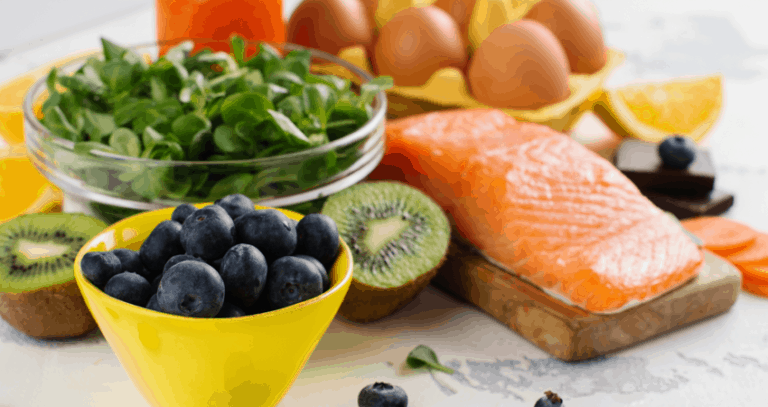A healthy body starts with what you put in it. If you eat junk or foods that are nutritionally deficient, your body will not function at optimum levels. There are specific nutrients that are essential for eye health. According to the American Optometric Association, there are five key nutrients that are essential for incorporating into your diet when you are eating for healthy vision:
- DHA/EPA Essential Fatty Acids – 500 mg per day
- Lutein – 6-10 mg per day
- Vitamin C – 500 mg per day
- Vitamin E – 400 iu per day
- Zinc – 40-80 mg per day
Nutrient Contributions for Eye Health
Each nutrient in this list has certain properties that contribute to healthy vision. Vitamin C, vitamin E, and zinc can help prevent or lower the risk of cataracts, while lutein can help you avoid age-related macular degeneration (AMD). Essential fatty acids, vitamin C, and vitamin E may be effective in preventing, treating, and slowing the progression of AMD. Poor night vision may be the result of a zinc deficiency, and essential fatty acids may help protect against dry eye.
Best Food Selections when you’re Eating for Healthy Vision
Some foods are higher in key nutrients than others. This list highlights the nutritional powerhouses when you’re eating for healthy vision:
- DHA/EPA Essential Fatty Acids
- “Fleshy” fish like salmon, tuna, and herring
- Lean meats
- Whole grains
- Flax oil
- Eggs
- Lutein
- Green beans
- Broccoli
- Tangerines
- Corn
- Oranges
- Kale
- Peas
- Spinach
- Vitamin C
- Strawberries
- Tomatoes
- Oranges
- Papaya
- Grapefruit
- Green peppers
- Vitamin E
- Sweet potatoes
- Almonds
- Safflower oil
- Sunflower seeds
- Pecans
- Zinc
- Shellfish
- Red meat
- Milk
- Whole grains
- Poultry
- Baked beans
- Liver
Incorporating these foods into your daily diet will help not only your eye health, but your overall health as well. When you combine a healthy diet with regular exercise, adequate hydration, and proper sleep, your entire body benefits.
Studies on Nutrition and Eye Health
Nutritional recommendations usually come from a well-researched, scientifically backed foundation. However, when those studies specifically target certain conditions, their position in the dietary structure for treating or preventing those conditions is strengthened. One such study, the Age-Related Eye Disease Study (AREDS), sponsored by the National Eye Institute (of the U.S. federal government’s National Institute of Health), showed that high dose vitamins C and E, zinc, and beta carotene resulted in significantly reducing the risk of AMD in study participants.
A more comprehensive examination of the nutrients involved in the study expanded on the initial information and provided a clearer picture of their role in eye health. It included the recommendation to incorporate several different nutrients into your diet as opposed to just one. There are no studies that adequately support eye disease prevention with just one nutrient. The evidence points to a wide selection of foods that provide different nutrients.
While eating for healthy vision is a good start, you also need good eye care which includes regular vision check-ups. Florida Eye Specialists offers a wide range of services from vision testing to cataract treatment and much more. Book your appointment today and make us part of your healthy vision treatment plan.

